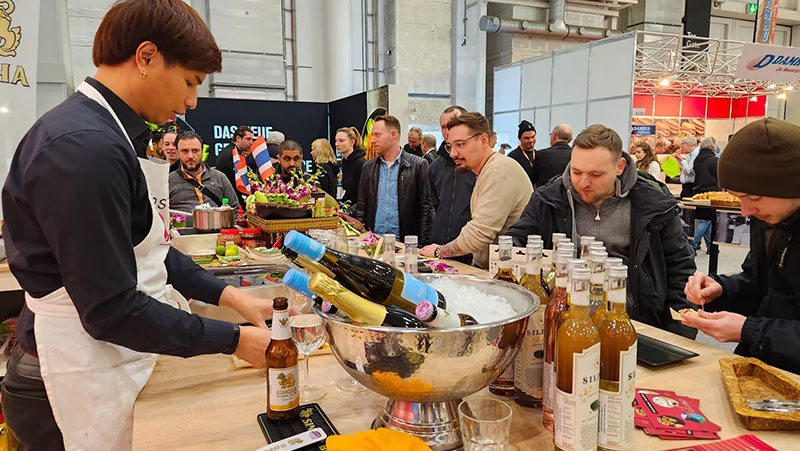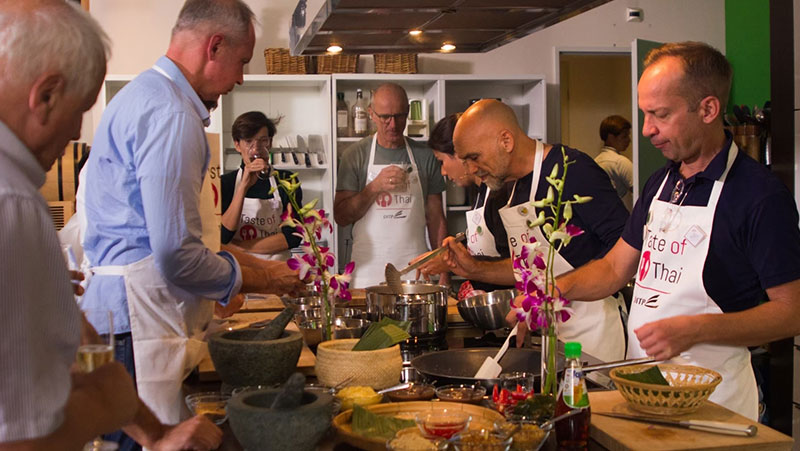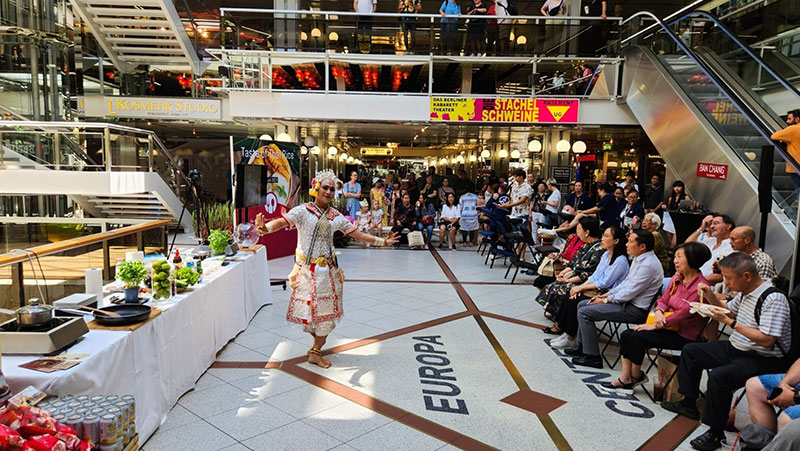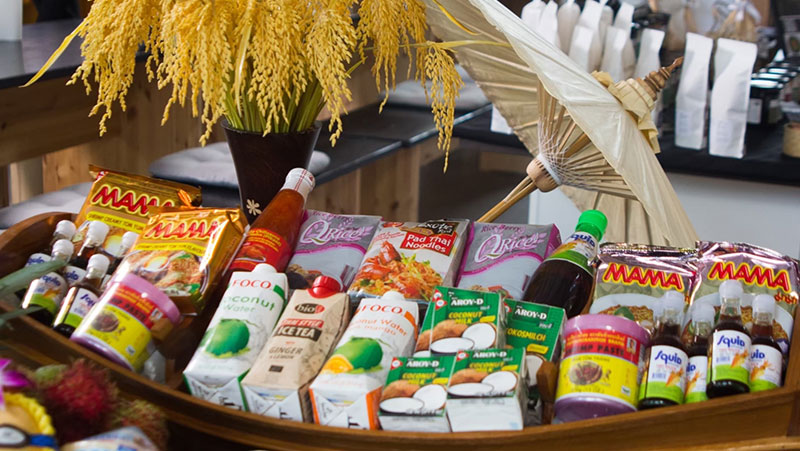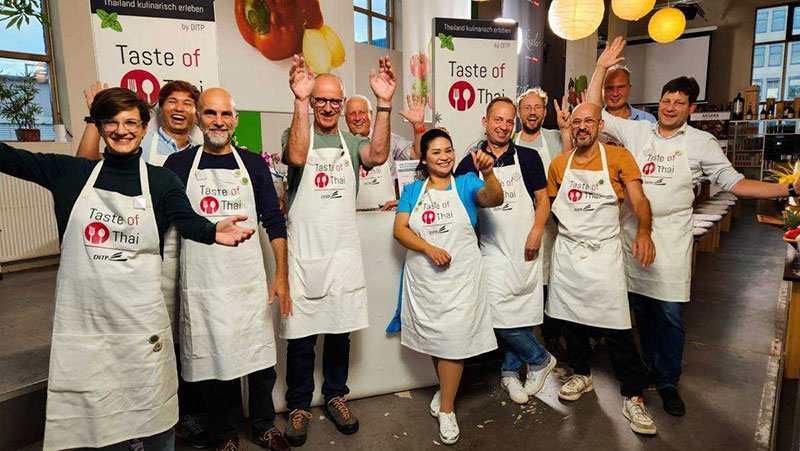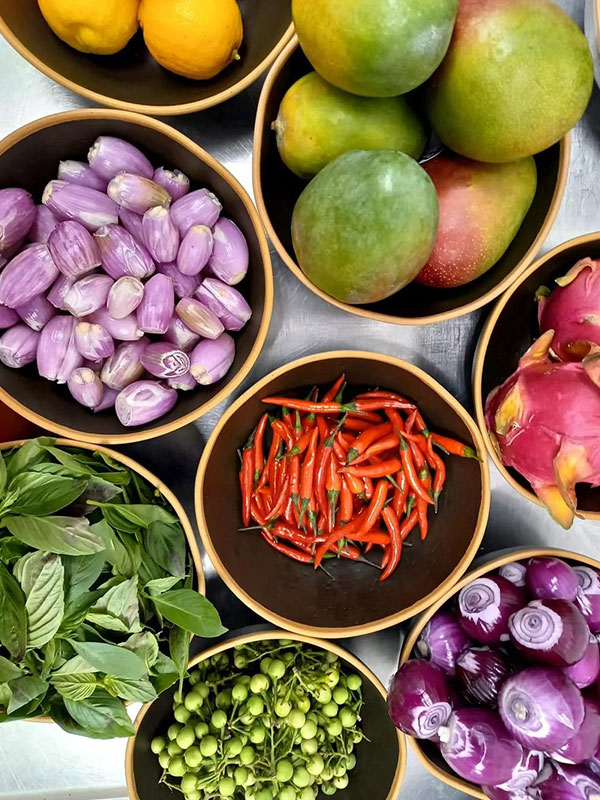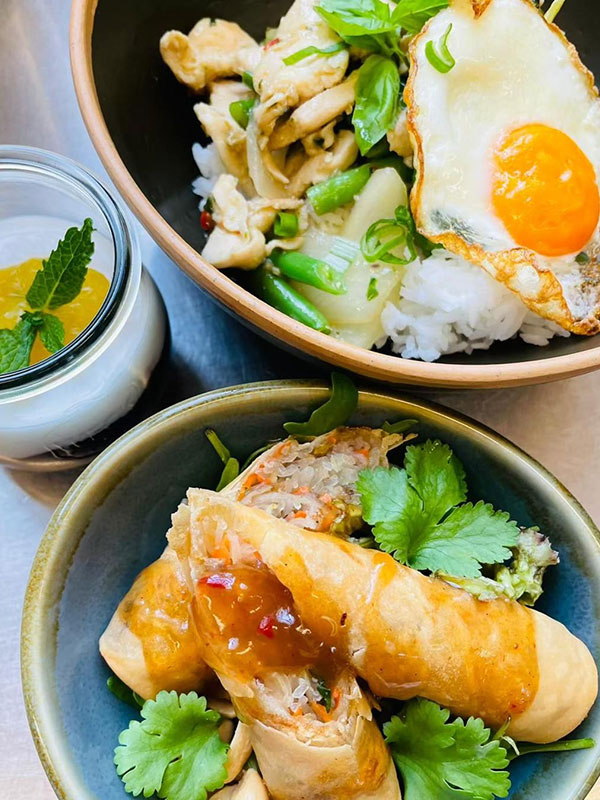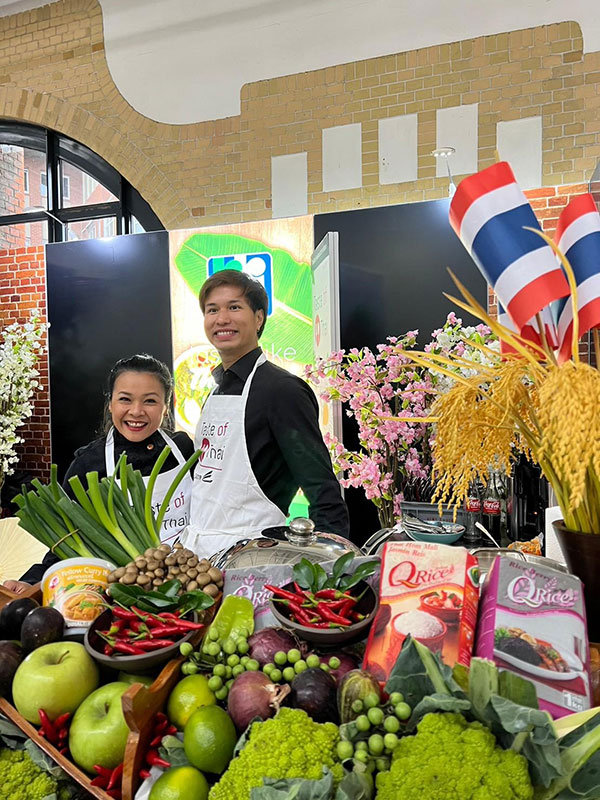
Recent food trends in Germany include a focus on health and nutrition, online shopping, shared culinary experiences, and sustainable and locally-sourced products.
Thai cuisine enjoys popularity in Germany, influenced by Germans’ love for international travel and the country’s multicultural urban society.
Thai food imports to Germany encompass a wide range of fresh and processed items, partially influenced by the impact of the Russian-Ukrainian War.
Germany has always held a strong appeal as a key market in Europe. The strategic central location, bordered by nine countries, combined with a robust economy grants the country considerable purchasing power and an efficient logistics system. Nevertheless, Germany faces a challenge due to its limited agricultural production, leading to heavy dependance on substantial food imports.
With an open-minded and receptive attitude towards diverse cuisines, Germans have long developed a fondness for Thai food, influenced by their love for international travel and exposure to various culinary traditions. Moreover, a multicultural society, driven by the influx of foreigners over the past five decades, is especially prominent in cities such as Berlin. In these urban centres, a thriving array of international restaurants, including Thai, can be found, further reinforcing this trend.
Some 400 Thai restaurants operate across Germany. Seventy have been awarded the Thai SELECT certification by the Thai Ministry of Commerce, guaranteeing the authentic taste of Thai cuisine. As demand for Thai food continues to rise, new restaurants with varied menus continue to open.
Recent times have witnessed changes in German consumption habits, partly influenced by the COVID-19 pandemic and Russian-Ukrainian War. Patchara Rattanabubpa, Minister Counsellor (Commercial) of Thailand in Germany, explains that four prominent food trends are currently shaping the German market:
- In Control: Germans have prioritised health and nutrition, seeking organic and healthy choices.
- Flexi: Germans are increasingly preferring online shopping and delivery services, with their choices influenced by online food bloggers.
- Eatertainment: Germans have embraced meal preparation as a fun social activity.
- Local Reclaim: Germans have turned to using local ingredients and eco-friendly products, including fair trade and low carbon footprint goods.
Currently, Thailand’s food products imported to Germany encompass both fresh and processed foods, including meat, seafood, rice, vegetable, fruit and beverages. Many of these products have experienced significant growth, becoming substitutes for other goods affected by the Russian-Ukrainian War.
“In addition to these foods, several other items are gaining popularity, such as sauces, seasonings, fresh vegetables and fruit, as well as plant-based food, soy milk and alternative protein sources,” Rattanabubpa says. “This is due to Germans’ reduced consumption of meat, driven by health consciousness and environmental concerns. In this evolving landscape, Thai businesses should understand and adapt to these trends, actively participating in food fairs in both Thailand and Germany, and learning from products of other countries to effectively present their goods in the export market.”
Words by: Pattareeya Puapongsakorn
Photo courtesy of the Thai Trade Office in Berlin, Germany


